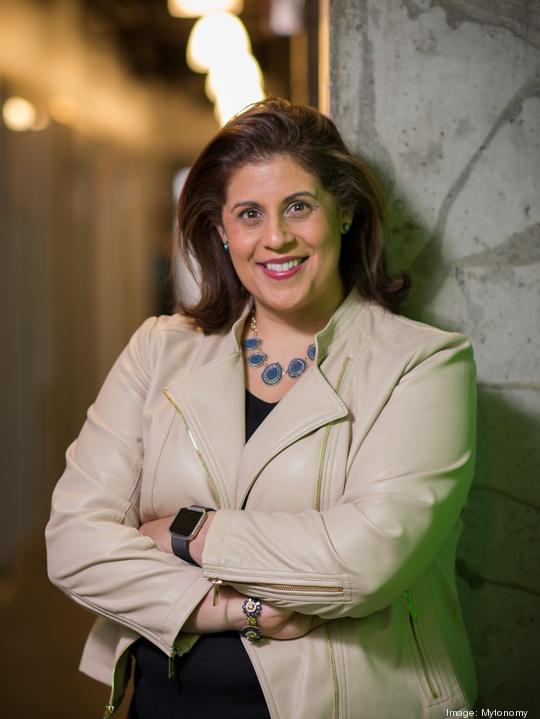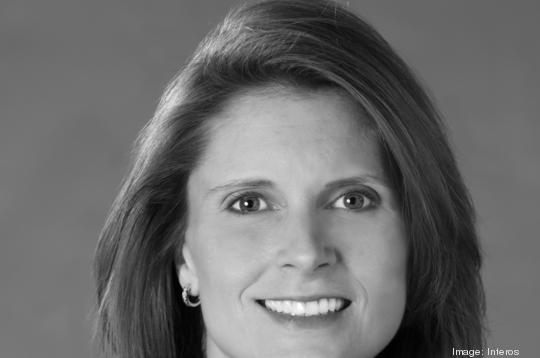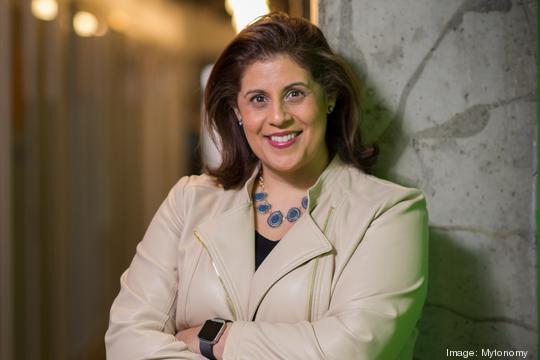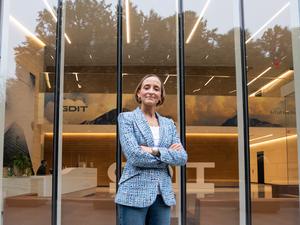Greater Washington startups have been raising a lot of money for the past year, and that includes a few that were founded and are led by women.
Two years after the Washington Business Journal honored Framebridge founder and CEO Susan Tynan as our CEO of the year — the record holder at the time in terms of raises by woman-owned companies — we decided to check where things stand in terms of venture capital raises by woman-owned companies.
There's a new record holder, according to data from venture tracking platform Pitchbook: Arlington risk-management company Interos, which raked in $100 million in July for a lifetime total of $125 million and a valuation of $1 billion.
We've rounded up the other biggest raises by female-founded firms in the past two years in the gallery above. In terms of methodology, the data from Pitchbook focuses on firms that have at least one woman founder and a woman CEO. It also focuses on VC, so it doesn't include firms that have raised from private equity or other means. See any that are missing? Shoot us an email and let us know.

Pandemic hit woman-owned firms harder
While there were some local successes on the funding front for women founders, nationally, the pandemic took a bigger toll on their companies. In a tale that’s become hackneyed at this point, firms with at least one woman founder and a woman as CEO were still far behind those led and founded by men in terms of deal volume and total deal value since start of 2020, Pitchbook reported Nov. 2.
And that funding gap widened during the pandemic, especially early on, according to the report from Pitchbook in partnership with national nonprofit Beyond the Billion and J.P. Morgan. While startups overall brought in 16.2% more funding in 2020 than in 2019, female founders brought in 3% less in venture funding in 2020 vs. 2019 — and saw 2.2% fewer deals.
“In other words, the pie was bigger, but female founders received a smaller slice,” the report released Tuesday noted.
There was some good news as the pandemic neared the 12-month mark. Deal value for woman-founded companies — which Pitchbook defines as those with at least one female founder — surged 19.5% year-over-year in the fourth quarter of 2020, compared to the overall market’s increase of 7.4%. The trend continued into 2021, with third quarter average deal value for woman-founded firms nearing $15 billion — triple what it was in the same quarter of 2020.
But there’s still lost time, and money, to make up for, especially for early-stage startups. Pitchbook’s research showed that the pandemic widened the valuation gap more starkly for them, with the average early-stage valuation for a female-founded startup coming in at $26 million in 2020, compared to $30 million for all startups in that stage. Thus far in 2021, the gap widened further to $40 million for companies from woman founders compared to $45.7 million for those from all founders.
In D.C., the earlier the stage, the bigger the impact
Locally, the earliest-stage companies suffered the most in the past year and a half. Investment in female-founded firms raising angel or seed funds in the D.C. market was just $30.5 million in 2020, down by more than 50% from $68.4 million in 2019, Pitchbook data show.
Female-founded firms in the early- and late-stage VC rounds fared better, however, with those early-stage companies pulling in $161 million in 2020, compared to $88.7 million in 2019, and those in late stage raising $208.3 million, compared to $111.9 million in 2019.

One of those local, later-stage startups, Bethesda health software company Mytonomy, managed a $25 million Series B round in 2021. (The company develops enterprise software for health care clients and has a platform with video, audio and written content that aims to keep patients more engaged with their care.) In some ways, says co-founder and CEO Anjali Kataria, it was easier to complete a Series B virtually, because “there was no travel time back and forth” to meet with the lead investor in the round, Level Equity, which has offices in San Francisco and New York.
“We also had multiple funds interested in Mytonomy so we ran a due diligence process in parallel — instead of having to do it sequentially — where interested parties visit your office to spend a few days with you and then that process is repeated,” she told the Washington Business Journal in an email. “That time period collapsed exponentially.”
That said, “the truncated and faster pace took a toll on my personal life,” Kataria said, noting that her school-age children were also struggling with remote school while she worked full-time at home.
“My 5th grade son turned to me one day and said, ‘Momma, I feel so alone even though you are here,’” she said. “That was a really hard thing for a mother to hear and made the fundraising more challenging for me.”
Luckily, with school back in-person, their family, which includes Kataria, her husband and Mytonomy co-founder Vinay Bhargava and their two children, has begun to heal, she said.
Pandemic hit relationship-building, and thus, funding
Kataria, who co-founded a Silicon Valley software company that ultimately sold to Oracle before working as an Entrepreneur in Residence in the Obama Administration, said one place the pandemic has hit women founders, especially those of color, is in relationship-building.
“Building new relationships has been hard in this pandemic for everyone, so I think that that is where we can make the biggest impact, finding ways to help women of color build meaningful relationships with VC’s and growth equity partners,” said Kataria, who says she falls back on bonding with potential investors over sports, politics and policy, a few of her passions.
Then again, it wouldn’t be such a heavy lift if more of those VCs looked more like her.
“As more women get into CEO roles and senior leadership (more than now) and more women take on leadership roles as investors, that will change the game too, because they presumably will be more open to building relationships with women and women of color,” she said.










